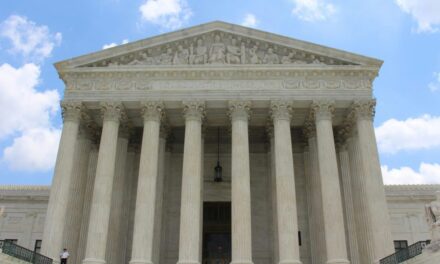by Karen Heslop
It’s tempting to have a glass or two of your favorite liquor before bed since that seems to help you unwind and get to sleep more quickly. Unfortunately, drinking alcohol before bed can be causing more harm than good when it comes to sleeping and your overall health. Here are 5 reasons you should skip that drink and find a healthier way to get to sleep.
1. There Can Be Increased Drowsiness
The main reason people drink before sleep is because of its sedating properties. The sedative doesn’t only last during the night, however. Studies show that alcohol interferes with the amount of an important neurotransmitter in the brain known as adenosine.
Normally, the levels of adenosine rise over time and make you feel sleepy to get prepared for the end of the day. When you drink, this process may not happen as it should and you’ll be drowsy earlier than you should be.
2. Alcohol Interrupts Your Sleep Cycle
To get all the benefits of a good night’s sleep, your body needs to go through a sleep cycle. This cycle includes three non-rapid eye movement (NREM) stages and one rapid eye movement (REM) stage.
While all these stages are important, memory consolidation and other brain-healing activities tend to happen in REM sleep.
Health experts estimate that may be why the REM stage of sleep tends to get longer as the night continues.
If you have a drink, the alcohol interferes with REM sleep and it may not last as long as it should. As a result, you feel less rested and your cognitive function may suffer the next day.
3. You Can Mess Up Your Circadian Rhythm
The circadian rhythm is your body’s natural way of determining when it should be getting ready to rest. The hormone, melatonin, is an integral part of this process as it promotes sleepiness. However, alcohol suppresses the production of melatonin. That explains why you may
fall asleep quickly after a drink but then wake up multiple times throughout the night. In fact, studies show that people who drink regularly before bed often develop alcohol-induced insomnia over time.
4. It Can Interfere With Your Breathing
Alcohol’s sedative properties affect all of the body’s systems and so many people who drink before bed have trouble breathing properly. A depressed respiratory system can result in your airway closing more easily and leading to obstructive sleep apnea.
If this happens, you’ll be waking up more often to resume breathing. Worse yet, you may not be aware of how often you had to wake up during the night to breathe properly. Even if you don’t develop sleep apnea, you’re also likely to snore, which is another sign that your respiratory system is struggling.
5. You’ll Wake Up More Frequently
Apart from the issues listed above, drinking before bed typically increases how often you get out of bed. Alcohol digests slowly in your system and so you’ll find that you have to get up more often to urinate.
When you finally sleep, it’s likely that you’ll be dealing with vivid dreams and nightmares that can make it seem as if you haven’t slept. Additionally, some people have reported incidents of sleepwalking.
What’s The Alternative?
It can be a little more involved, but it’s better to develop a relaxing routine before bed. This can include a warm bath, relaxation exercises, and drinking a cup of calming tea like chamomile.
Reducing noise and bright lights in your bedroom can also help get you to sleep. By getting a good night’s sleep, you’ll contribute to your overall wellness too. If you still feel the urge for a drink, experts suggest keeping it to one glass and having it at least four hours before bed.
Many people have a drink before going to bed because of the belief that it will help them sleep. It’s true that you may fall asleep quickly but you won’t stay that way. Additionally, the effects of that glass of liquor will last well into the next day and affect how well you can handle your tasks. It’s a much better idea to use a bedtime routine and leave the drinking for recreational times.











